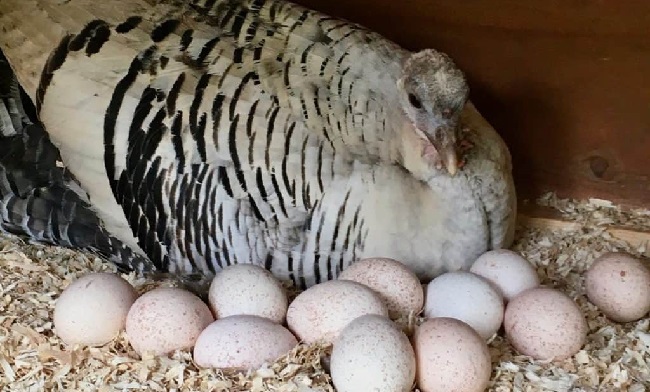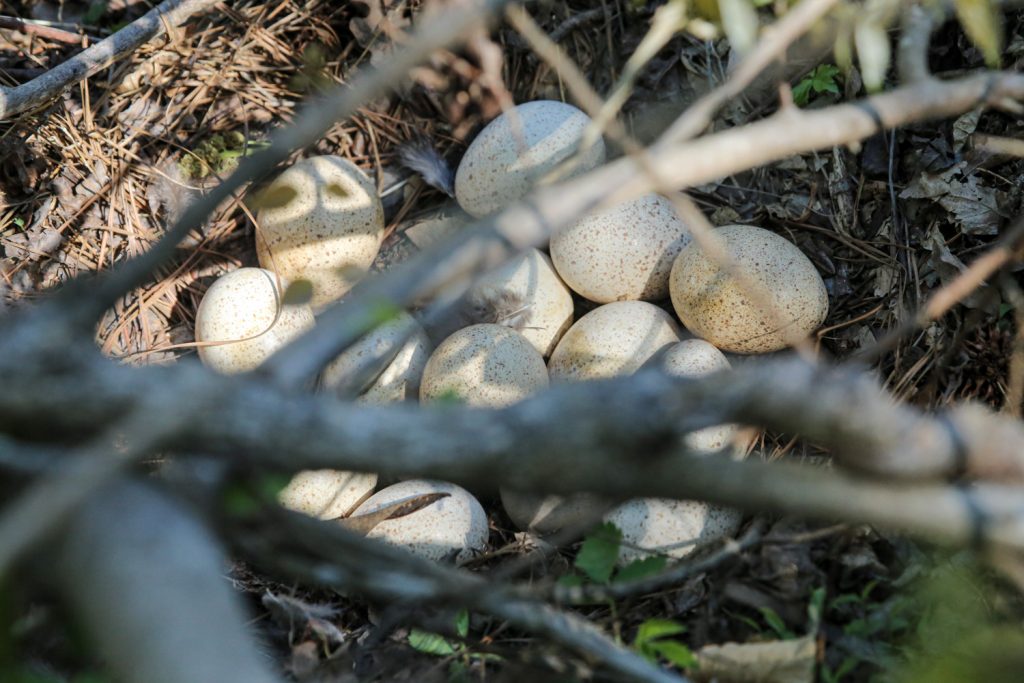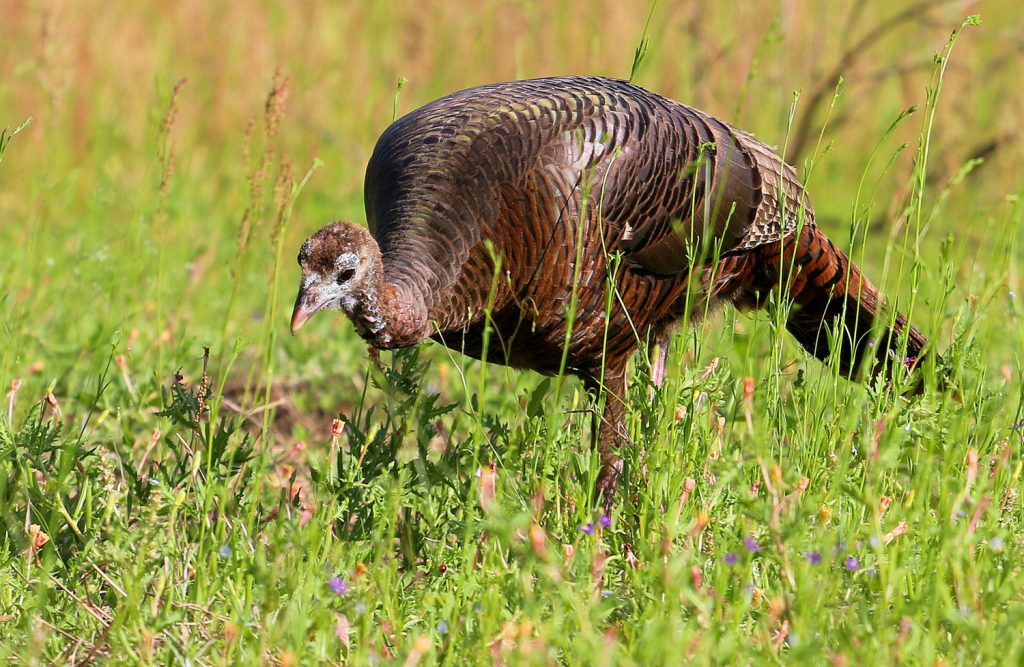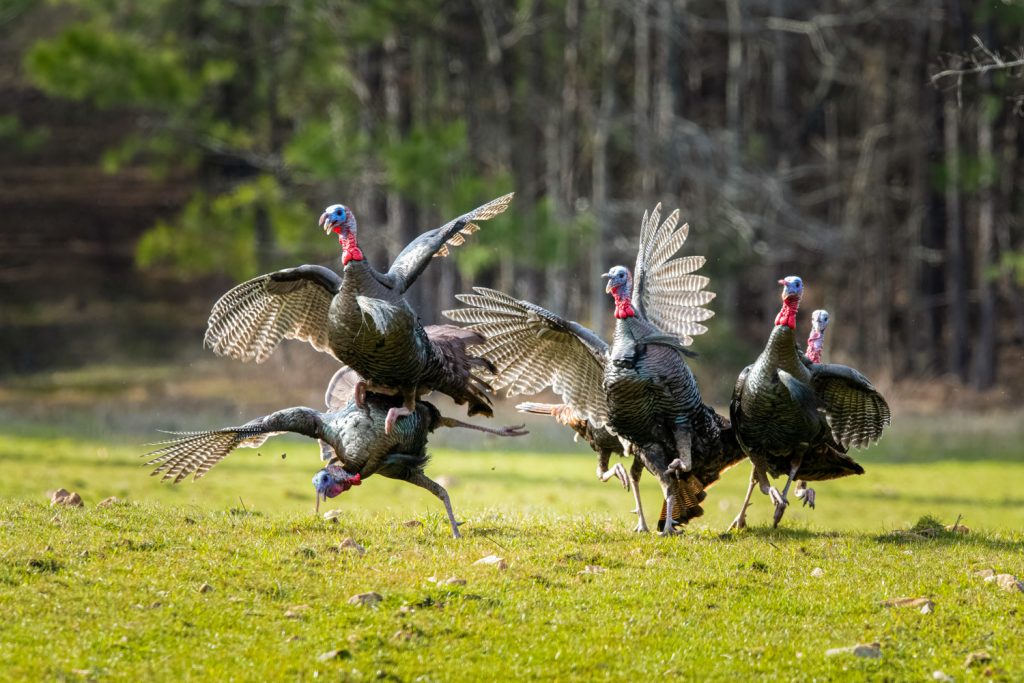As Thanksgiving approaches, many people’s thoughts turn to turkeys. These large, striking birds are an icon of the holiday season But there’s a lot more to turkeys than their role on our holiday tables Their natural behaviors and lifecycle are quite fascinating. One question many turkey enthusiasts ponder is how many eggs a turkey will lay over the course of its lifetime. Let’s explore the details and learn more about the egg laying capabilities of these remarkable birds.
An Overview of Turkey Egg Laying
The number of eggs a turkey will lay depends on a few key factors
- The turkey’s breed
- The individual turkey’s egg laying tendencies
- The turkey’s age and health
- The time of year
On average, turkeys will lay between 10-14 eggs per clutch, or group of eggs. They often produce multiple clutches over the course of a breeding season. Over their lifetime, a healthy, productive turkey hen could lay over 100 eggs. However, the number can vary considerably based on the factors above.
Key Details on Turkey Egg Production
Let’s break down some of the specifics around how many eggs turkeys lay:
-
Breed – Heritage turkey breeds like Narragansett, Bourbon Red, and Standard Bronze tend to be proven, persistent egg layers. Modern broad-breasted turkeys have been selectively bred more for meat production rather than egg laying.
-
Individual Tendencies – Just like with chickens, some turkey hens are simply more prolific layers than others. An exceptional, healthy turkey could potentially lay up to 80 eggs in a single breeding season.
-
Age – Turkey hens generally start producing eggs around 28 weeks of age. Older hens in their prime laying years of 2-5 years old produce the most eggs.
-
Season – Turkeys will only lay eggs during the breeding season, which typically starts in early spring. No eggs are produced in winter months.
-
Health – Proper nutrition and habitat helps hens lay as many eggs as possible. Stress, disease, malnutrition, or unsuitable habitat can limit egg production.
As you can see, many factors influence just how many eggs a turkey will lay over its lifetime. Let’s look closer at their egg laying process.
The Egg Production Cycle for Turkeys
Turkeys go through a yearly reproductive cycle that influences their egg laying:
-
Spring – Days get longer, which triggers breeding instincts and initiates egg laying
-
Breeding – Hens mate with males and then look for a suitable nesting site
-
Laying – Over the next 2 weeks, the hen will lay 10-14 eggs in her nest
-
Incubating – Once all eggs are laid, the hen sits on them for 28 days to hatch them
-
Raising poults – For the next 4-5 months, the hen focuses on raising her chicks (poults)
-
Winter – With winter’s arrival, egg laying stops until the next spring
This cycle will repeat each spring, allowing the hen to produce multiple clutches. Some hens may re-nest if a clutch is lost early in the season. This natural reproductive cycle limits turkeys to one prolonged “laying season” each year.
How Long Do Turkey Eggs Take to Hatch?
Once a turkey hen has laid her full clutch of eggs (usually 10-14), she will start incubating them. The incubation period for turkey eggs is 28 days. During this time, the hen diligently sits on the nest, keeping the eggs warm until they hatch.
Turkey poults are precocial, meaning they are relatively mature and mobile from the moment they hatch. Within 12-24 hours, poults will leave the nest with their mother to search for food. This a key survival mechanism, reducing the time poults are confined to the nest where they are vulnerable.
What Factors Influence the Number of Eggs Laid?
As mentioned earlier, several factors affect how many eggs a turkey will lay. Here is more detail:
-
Breed – Heritage breeds lay 100+ eggs annually. Broad-breasted turkeys may lay 30-50.
-
Individual bird – Exceptional hens can lay up to 80 eggs per season, while poor layers may produce just 20-30.
-
Age – Peak laying spans a hen’s 2nd to 5th year of age. Older and younger turkeys lay fewer eggs.
-
Photoperiod – Increasing daylight triggers a hen’s egg production. Lengthy daylight exposure equals more eggs.
-
Nutrition – Diets high in calcium and protein promote increased egg production.
-
Stress – Stress from predators, crowding, noise, or poor habitat can limit laying.
As you can see, both natural and man-made factors influence egg production. Careful breeding and management leads to more abundant laying.
How Many Times Per Year Do Turkeys Lay Eggs?
Turkeys only have a single, extended egg laying season each year. This begins in early spring and tapers off by mid-summer. Egg production is triggered by increasing daylight, not by a specific month on the calendar.
The length of the laying season depends partly on geography. In warmer southern regions, hens may start laying as early as February. In colder climates, onset of egg laying may not commence until April. Most hens will produce eggs from March through July.
During this peak spring laying season, a turkey hen can produce multiple clutches of 10-14 eggs. Depending on individual rates of egg production, a hen may lay 30-50 eggs in warmer climates, or 20-30 eggs in colder areas with a shorter spring season.
By July, decreasing daylight brings egg laying to halt. No eggs are laid in fall and winter months while daylight hours are short.
Do Wild Turkeys Lay More Eggs than Domestic Turkeys?
Surprisingly, domestic broad-breasted turkeys lay more eggs per year than their wild cousins. There are two main reasons for this:
-
Breeding – Modern domestic turkeys have been selectively bred to maximize egg production.
-
Conditions – The comfortable conditions of captivity allow more consistent, abundant egg laying.
Wild turkeys face greater environmental pressures like weather, predators, and limited food that can inhibit egg production. A wild hen may only lay one or two clutches of 10-12 eggs each year.
Domestic turkeys benefit from protection from predators, climate controlled housing, year round nutrition, and human caretakers collecting their eggs frequently. This allows them to produce eggs more abundantly.
In their peak spring breeding season, a healthy turkey hen can lay between 10-14 eggs multiple times, potentially producing 80 or more eggs. Year after year, a productive domestic turkey may lay over 100 eggs annually. Egg production drops off for wild turkeys and older domestic hens. Many factors from breeding to habitat influence just how many eggs a turkey will lay in its lifetime. With good care and a favorable environment, turkeys can be prolific egg layers, supplying their caretakers with a bountiful supply of eggs.

Dominance and Pecking Order
- Turkeys have home ranges, not territories.
- Birds fight for dominance recognizing individuals within the pecking order while sharing overlapping home ranges.
- Males and females have separate hierarchies.
- Stable pecking orders within flocks of the same sex seem to be common to all wild turkeys subspecies.
- Breeding behavior is triggered primarily by the increasing day length in spring and subsequent hormonal response.
- Unusually warm or cold spells may accelerate or slow breeding activity slightly.
- Courtship behavior patterns include gobbling and strutting by the males, this attracts the female.
- The hen crouches to select the gobbler for matting, which signals the male to copulate.

- Hens become secretive while searching for a site to nest prior to laying eggs.
- Nests are shallow depressions formed by scratching, squatting and laying eggs.
- Moderate dense understory is preferred to allow hens a view, but also provide protection.
- Hens lay between 10-12 eggs during a two week period.
- Continuous incubation begins when the last egg is laid.
- The hen will only leave for a short period to feed and may remain on the nest for several consecutive days.
- Eggs will be incubated for 26-28 days. The hen sits quietly and moves about once an hour to turn and reposition the eggs.
- Hatching begins with pipping – the poult rotating within the shell, chipping a complete break around the large end of the egg.
- Hens make soft clucks in response at random to begin to imprint the baby birds.
- Imprinting is a special form of learning which facilitates the rapid social development of the poults into adults.
- Damp poults free themselves but dry fully so they can follow the hen away from the nest within 12-24 hours after hatching.

The life of wild turkeys is both fascinating and dynamic.
Whether you’re learning their behavior to help put some food in your freezer or if you simply want to increase your wild turkey knowledge, knowing it’s day-to-day habits and how it behaves during breeding season will help you along in your quest.

How many eggs do turkeys lay?
FAQ
How many eggs do turkeys lay before sitting?
Can a turkey lay 2 eggs a day?
How many babies can turkeys have?
How many eggs can a turkey brood?
